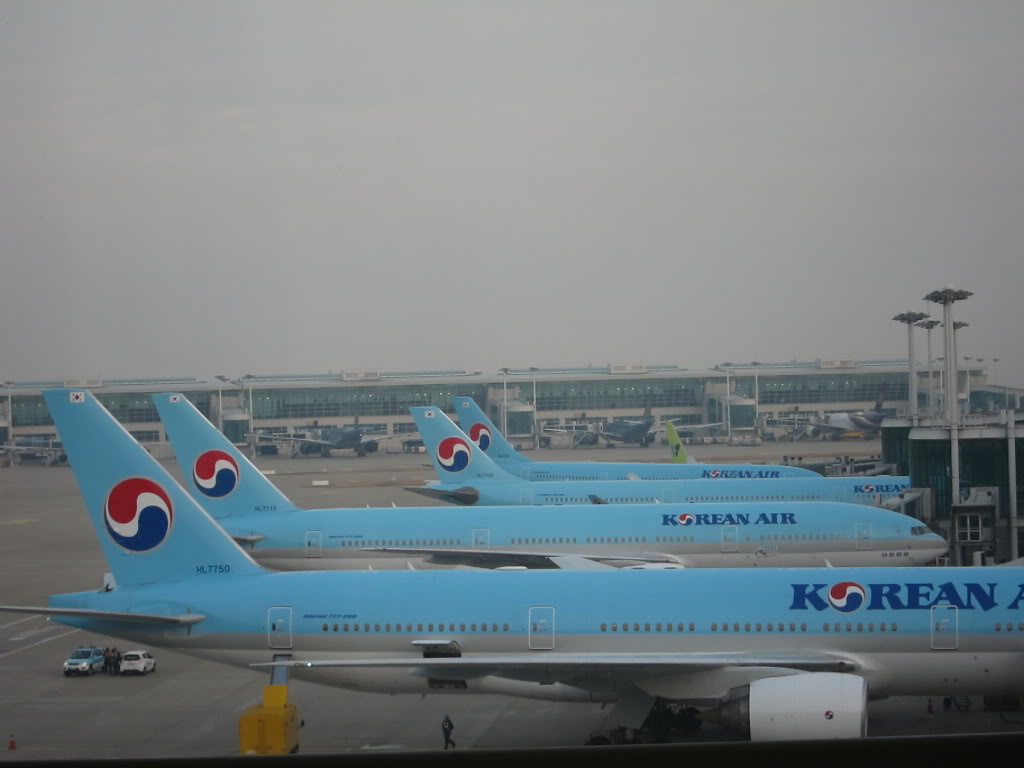South Korea’s Korean Air is buying its major competitor, troubled Star Alliance member Asiana. While the Asiana brand will initially survive, it’s expected to eventually be folded into SkyTeam member Korean which is partially owned by Delta Air Lines. (This is bad for frequent flyers.)

But that’s not the only consolidation that may happen in the region. Japan is preparing to inject subsidies into its largest carriers, ANA and Japan Airlines, and the Prime Minister’s inner circle believes that the two airlines should be merged in order to promote their survival.
Here is a snippet of an English-language article on the Japan Airlines-ANA merger suggestion coming from an adviser to the Japanese PM. Now go subscribe to a Bloomberg @business… Terminal 🤑🤑🤑 https://t.co/hloJhnhCq4 pic.twitter.com/7KMW3k9ZDb
— G-DLEE AVIATION 2020 (@JournoDannyAero) November 24, 2020
Keeping airlines afloat with government funds and competing with each other is counterproductive. Japan’s long term stagnation has underscored the risk of zombie firms (in their case largely banks). The need for subsidies implies the need for consolidation, otherwise airlines are just burning through the subsidies competing for limited passenger business at a loss.

Now I have to imagine that in the event of a merger between ANA and Japan Airlines – still speculative at this stage, but at the highest levels of government – that the larger brand (ANA) would survive. That would benefit Star Alliance and come at the expense of oneworld. However it’s certainly thnkable that an effectively nationalized air carrier could take the name Japan Airlines (although All Nippon Airways is just as patriotic).
Covid-19 accelerates many of the changes that we could have seen anyway, and creates realignments across industries. It could mean consolidation not just in South Korea but in Japan as well, and elsewhere. And that means shifts in global alliances and joint ventures, with huge implications for airlines around the world. It already looks like Star Alliance will lose Asiana. Will United keep its transpacific joint venture with ANA, or with American keep theirs with JAL?


And by 2025, the tax-paying passengers will again be paying the costs for these airline mergers backed by and funded by taxpayer money in one way or another. And the cost will be awful for consumers.
JAL name but ANA agreements
UNITED JV flow too valuable to lose
ANA better be the one to survive…though I would miss the classic JAL livery. But if things went the other way and *A lost ANA I would expect UA to cozy up to BR as the next logical option…
ANA has a larger number of deeper joint ventures, and would likely comprise the successor of any merged NH/JL entity. The UAL/NH JV is larger than JAL/AA, so it too would be a likely successor, but an essential monopoly in the Japanese market might expose it to antitrust scrutiny.
Overall, I’ll believe it when I see it…
@Greg: I don’t think that a NH/UA JV will be allowed to go on if NH merges with JL – it will lead to an absolute monopoly on some of the largest TPAC routes to Japan like NY-TYO, SF-TYO and CHI-TYO.
How do you think this will affect award travel ticketed now but for travel next year?
@CW – It shouldn’t at all. First, I don’t expect any of these brands to go away in 2021 (usually takes some time, not less than 18 months), and no deal has yet closed.
In any case, the only change to ticketed award travel that would happen would be an inability to make changes. Already-issued tickets will be fine, when the time comes.
ANA and JAL will not be merged, they will both survive, but Star will lose in Korea for sure.
to keep it fair they should rebrand as a new airline ANA + JAL = ANAL
@Gary, thanks!
Please note – The Japanese Prime Minister, Yoshihide Suga, has not made any remarks supporting the merging of ANA and JAL. The comment in the embedded tweet in your article was made by Heizo Takenaka, a former cabinet member of Koizumi in the early 2000s, who is now a retired politician serving only as an adviser to the current PM.